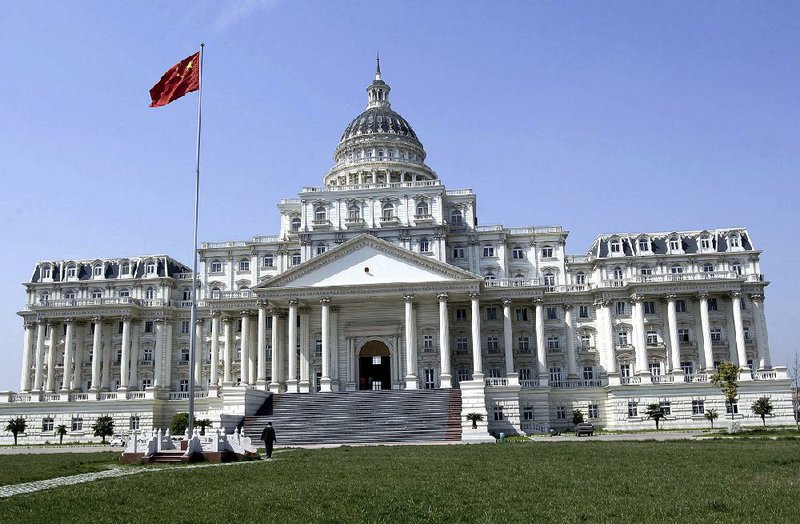BEIJING - China’s leaders have banned the construction of government buildings for five years as another step in a frugality drive that aims to address public anger at corruption.
The general offices of the Communist Party’s Central Committee and the State Council - China’s Cabinet - jointly issued the directive Tuesday, according to the official Xinhua News Agency. No directive was immediately available online.
Across China, grand government buildings with oversize offices and fancy lighting including chandeliers have mushroomed in many cities. They are often among the most impressive buildings in their own towns, drawing disapproval from the public.
President Xi Jinping, appointed as the ruling Communist Party’s general secretary in November, last month pledged a “thorough cleanup” of the party amid a year-long campaign aimed at ridding its ranks of bureaucracy and extravagance. China’s economy grew 7.5 percent in the second quarter and is at risk of the weakest expansion in 23 years. The president has spearheaded a campaign to cut through pomp, formality and waste among senior officials that have alienated many ordinary citizens.
“The main purpose of the call for a ban on new government buildings is largely symbolic in that these are a highly visible sign of government officials misusing public monies,” Andrew Wedeman, a political science professor at Georgia State University and author of Double Paradox: Rapid Growth and Rising Corruption in China, wrote in an email.
This year, high-end restaurants have reported a downturn in business as government departments and state owned companies canceled banquets.
Xinhua reported that the directive orders an “across-the board halt” to construction of official buildings, and “glitzy” structures built as training centers, hotels or government motels. Some government agencies have built such buildings in seaside resorts and other scenic spots as a perk for their officials and employees, who can stay for free or at deeply discounted prices. They sometimes open to the public as profit-making ventures.
“Some office buildings use up a lot of money, there are operating costs, and a lot of money is spent on people eating and drinking, which all comes from government funds, so it’s a kind of corruption,” said Liu Shanying, a researcher of politics at the Chinese Academy of Social Sciences in Beijing.
The directive forbids luxury interior design and the expansion of office compounds that is done under the guise of repair work, according to Xinhua.
Xinhua said the directive noted that some departments and localities have built government office compounds in violation of regulations, which has tainted the image of the Communist Party and the government and stirred vehement public disapproval.
It added that the directive calls on party and government bodies to be frugal and ensure that government spending goes toward developing the economy and enhancing living standards.
There have been restrictions on constructing new government buildings in the past, but they have not always been implemented well at local levels, Liu said.
Information for this article was contributed by Henry Hou of The Associated Press and Jun Luo of Bloomberg News.
Business, Pages 25 on 07/24/2013

